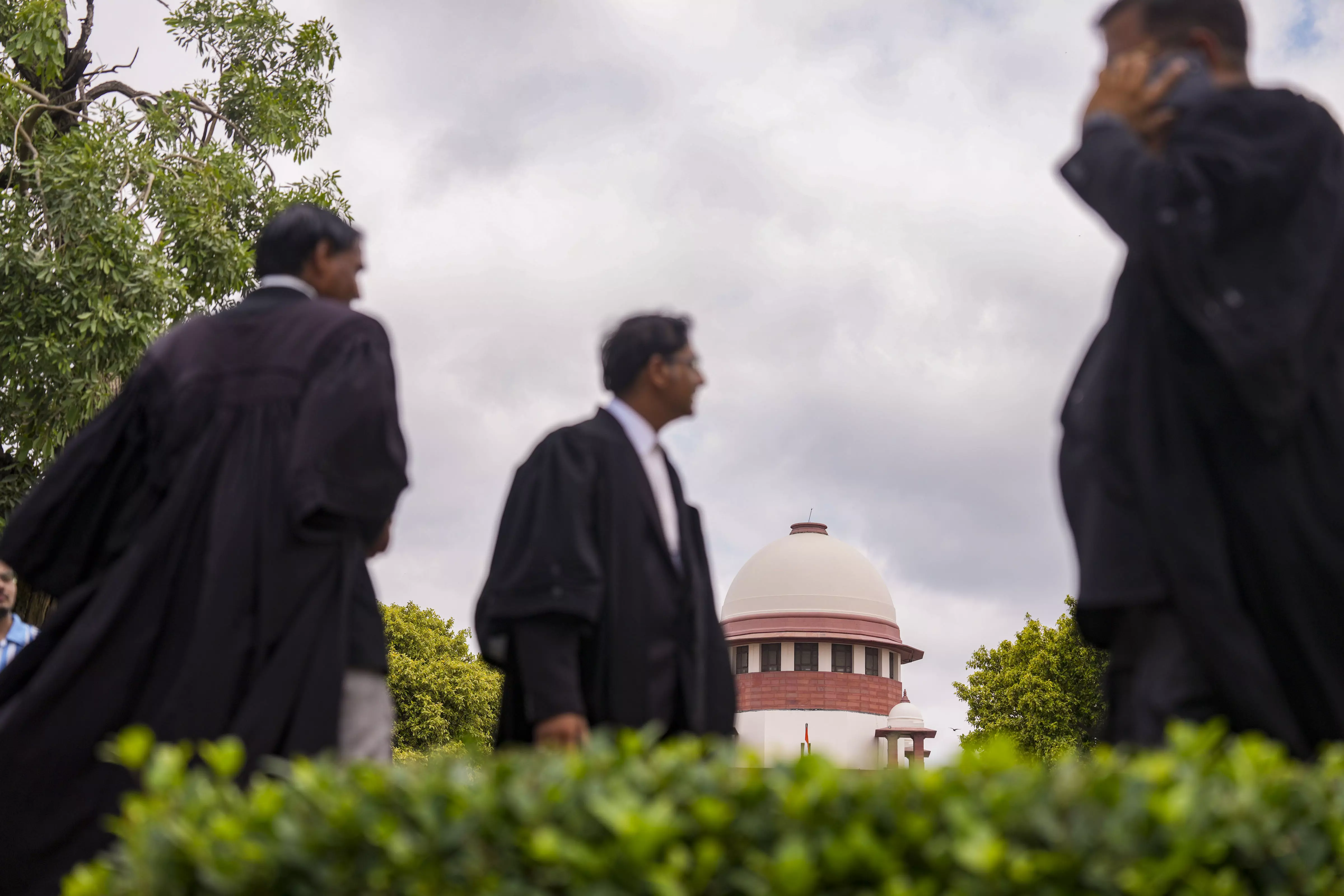
New Delhi: The Supreme Court on Tuesday fixed a time schedule for hearing the Presidential Reference raising constitutional issues on whether timelines could be imposed for dealing with bills passed by assembly, and proposed to start the hearing from August 19.
A five-judge bench headed by Chief Justice BR Gavai asked the Centre and states to file their written submissions by August 12.
Asking the parties to adhere strictly to the timeline, the bench also comprising Justices Surya Kant, Vikram Nath, P S Narasimha and A S Chandurkar said that it will be first hearing preliminary objections filed by states like Kerala and Tamil Nadu questioning the maintainability of the Presidential Reference on August 19 for one hour.
The top court said the Centre and the States supporting the Presidential Reference will be heard on August 19, 20, 21 and 26, while those opposing it will be heard on August 28 and September 2, 3 and 9.
The bench said rejoinder submissions, if any, will be heard on September 10.
On July 22, the top court observed that the issues raised in the Presidential reference will affect the “entire country”.
In May, President Droupadi Murmu exercised powers under Article 143(1) to know from the top court whether timelines could be imposed by judicial orders for exercise of discretion by the President while dealing with the bills passed by state assemblies.
The President’s decision comes in light of the April 8 verdict of the apex court passed in a matter over the powers of governor in dealing with bills questioned by the Tamil Nadu government.
The verdict for the first time prescribed that the President should decide on the bills reserved for her consideration by the governor within three months from the date on which such reference is received.
In a five-page reference, President Murmu posed 14 questions to the Supreme Court and sought to know its opinion on powers of governor, President under Articles 200 and 201 in dealing with bills passed by the state legislature.
The verdict has set a timeline for all governors to act on the bills passed by the state assemblies and ruled that the governor does not possess any discretion in exercise of functions under Article 200 of the Constitution in respect to any bill presented to them and must mandatorily abide by the advice tendered by the council of ministers.
It had said state governments can directly approach the Supreme Court if the President withholds assent on a bill sent by a governor for consideration.





